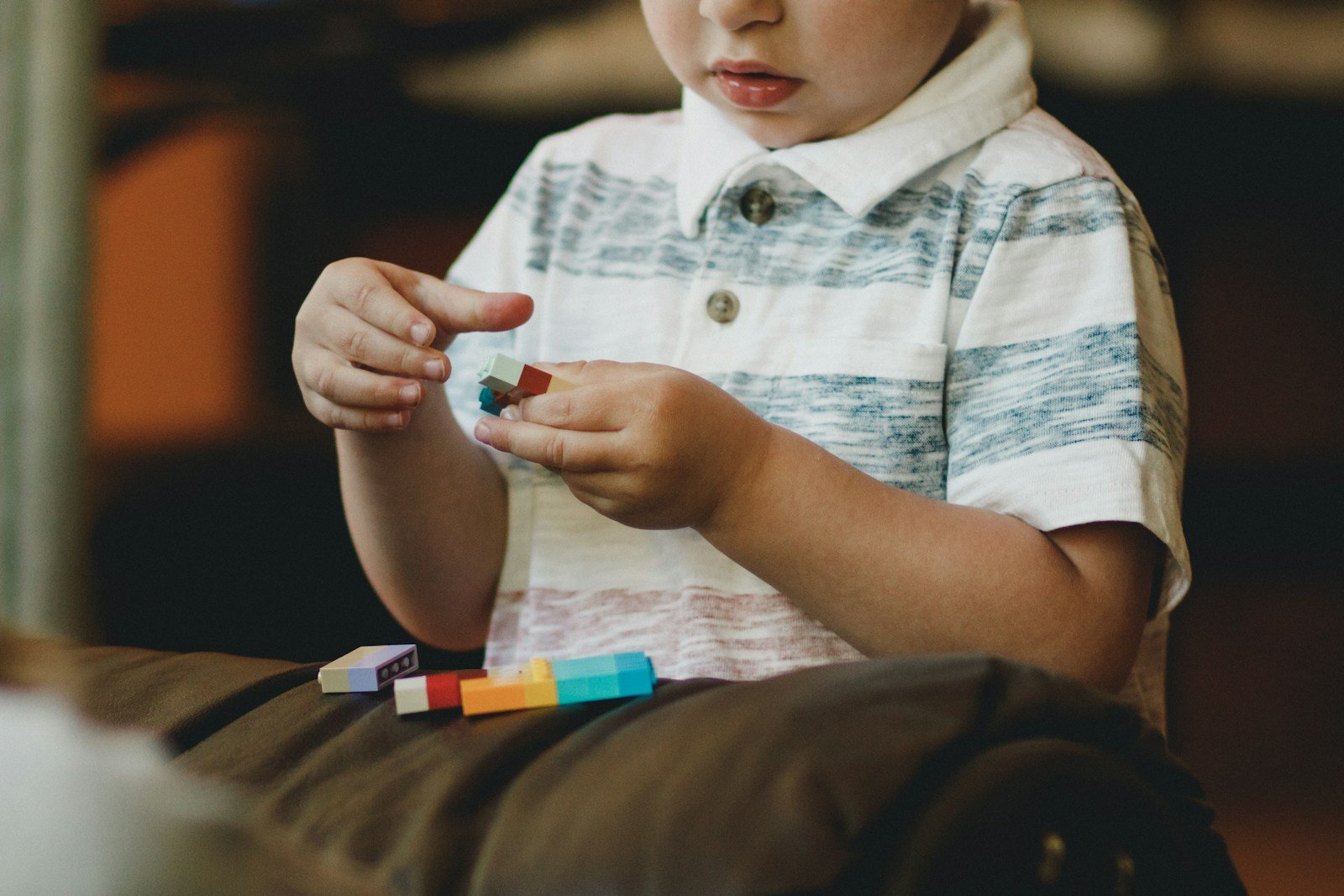Occupational therapy (OT) plays a pivotal role in transforming the lives of children with behavioural disabilities. By focusing on improving daily living skills and emotional comfort, OT helps these children achieve a higher quality of life. This blog post by Abreu Quality Care, Inc. explores the significance of occupational therapy in fostering independence, enhancing skill development, and supporting families of children with behavioural disabilities.
Understanding Behavioural Disabilities in Children
Behavioural disabilities in children cover conditions like ADHD and autism spectrum disorders, deeply affecting their communication, interaction, and daily functioning. These disabilities present unique challenges, making everyday tasks and social interactions difficult. However, early intervention and targeted support can significantly enhance their development and quality of life.
Key points while considering Occupational Therapy
- Wide Range of Conditions: Behavioural disabilities include various disorders, each with distinct challenges. For example, ADHD impacts focus and behavior, while autism affects communication and social skills.
- Impact on Daily Life: These disabilities can hinder basic daily activities and social interactions, leading to frustration and isolation for the child.
- Importance of Early Intervention: Early and tailored interventions, such as occupational and speech therapy, are crucial. They can improve the child’s abilities and integration into society.
- Targeted Support: Individualized care plans, developed by a team of professionals and the child’s family, are essential for addressing the specific needs of each child.
- Role of Families: Families and caregivers are pivotal, providing support and advocating for their children’s needs.
What is Occupational Therapy?
Occupational therapy (OT) is a holistic, client-centered approach within the health profession that is dedicated to promoting health, well-being, and quality of life through occupation.
In the context of children with behavioural disabilities, OT plays a crucial role in empowering these young individuals to engage in everyday activities with greater independence and confidence.
The Core of Occupational Therapy
At its heart, occupational therapy is based on the premise that engaging in meaningful activities is critical to one’s health and well-being. Occupations for children may include playing, learning, and performing self-care tasks.
OT practitioners work to understand the specific needs and challenges of each child, tailoring interventions that will enable them to participate more fully in these activities.
The Scope of OT in Pediatric Care
For children with behavioural disabilities, such as ADHD, autism, and others, occupational therapy offers a lifeline to achieving normalcy and success in daily tasks. These children often face obstacles in basic activities such as dressing, eating, personal hygiene, and social interaction.
OT interventions are designed to address these challenges, focusing on enhancing the child’s motor skills, sensory processing abilities, and executive functioning.
Techniques and Strategies
Occupational therapists employ a variety of techniques and strategies to assist children with behavioural disabilities. These may include:
- Sensory Integration Therapy: Helps children who have difficulty processing sensory information. This therapy can improve their ability to respond to sensory stimuli in their environment in a more adaptive manner.
- Development of Fine and Gross Motor Skills: Through exercises and activities, therapists work to improve the child’s coordination and movement, aiding in tasks from writing to playing sports.
- Social Skills Training: Many children with behavioural disabilities struggle with social interaction. OT can offer strategies and practice to enhance these skills.
- Cognitive Behavioural Techniques: These are used to help manage behaviors and emotions, teaching children coping strategies for better emotional regulation.
- Adaptive Strategies and Equipment: Occupational therapists often recommend or design tools and devices to assist children in performing daily tasks, promoting independence.
The Impact of OT
The impact of occupational therapy on children with behavioural disabilities can be profound. By improving their ability to perform daily activities, OT helps to boost their self-esteem, enhance their social participation, and promote their overall mental and physical health. The ultimate goal is to enable these children to lead more fulfilling and autonomous lives.
The Goals of Occupational Therapy for Children with Behavioural Disabilities
Occupational therapy (OT) serves a vital function in the lives of children with behavioural disabilities, aiming to significantly enhance their ability to engage in daily life with autonomy and confidence. By focusing on a broad spectrum of developmental areas, OT seeks not just to improve specific skills but to foster a holistic sense of well-being and competence in these children.
Below, we explore the comprehensive goals of occupational therapy in this context.
Enhancing Participation in Daily Activities
The overarching goal of occupational therapy is to empower children with behavioural disabilities to participate more fully and independently in daily activities. This includes a wide range of tasks, from basic self-care to more complex activities required for school and play.
OT practitioners work to identify barriers to participation and develop individualized strategies to overcome these challenges, enabling children to achieve a sense of accomplishment and independence.
Developing Fine and Gross Motor Skills
A crucial focus of occupational therapy is the development of motor skills. Fine motor skills, which involve the use of small muscles in the hands and fingers, are essential for tasks such as writing, using utensils, and manipulating objects. Gross motor skills, which utilize larger muscle groups for activities like walking, running, and jumping, are also critical for children’s overall physical development and participation in play.
OT interventions aim to enhance these skills through targeted exercises and activities, promoting greater physical coordination and capability.
Enhancing Communication Abilities
For many children with behavioural disabilities, communication can be a significant challenge. Occupational therapy plays a key role in improving these abilities, whether it’s through augmentative and alternative communication devices for non-verbal children or through strategies to improve verbal communication and comprehension.
By enhancing communication skills, OT helps children express their needs, share their thoughts and feelings, and interact more effectively with others.
Fostering Social Skills
Social interaction is a complex area of development that can be particularly challenging for children with behavioural disabilities. Occupational therapy aims to foster social skills, such as taking turns, understanding social cues, and developing empathy, which are essential for making friends, working in groups, and participating in community activities.
Through role-playing, social stories, and guided interaction, OT practitioners help children learn and practice the nuances of social engagement.
Promoting Emotional and Behavioural Regulation
Occupational therapy also addresses emotional and behavioural regulation, teaching children strategies to manage frustration, anxiety, and other emotional responses.
By learning coping mechanisms and self-regulation techniques, children can better navigate the challenges they face, leading to improved behavior at home and in school.
Empowering Families and Caregivers
Finally, occupational therapy recognizes the crucial role of families and caregivers in supporting children with behavioural disabilities. OTs provide education, resources, and strategies to families, enabling them to create supportive home environments that reinforce therapeutic goals and foster the child’s development.
Key Occupational Therapy Techniques for Children with Behavioural Disabilities
Occupational therapy (OT) employs targeted techniques to support children with behavioural disabilities, focusing on enhancing their daily functionality and overall quality of life. Here’s a streamlined overview of essential OT techniques:
Sensory Integration Therapy
This approach helps children better process and respond to sensory stimuli, reducing overwhelm and improving focus and social interactions. Activities may include tactile play, movement exercises, and auditory input to help children navigate sensory experiences more effectively.
Development of Life Skills
OTs teach essential daily living skills such as personal hygiene, dressing, and eating. Techniques include breaking down tasks into manageable steps and using adaptive tools to increase independence.
Play Therapy
Through play, children improve cognitive, social, and emotional abilities. Structured play activities are designed to be both engaging and therapeutic, fostering problem-solving skills and social interaction.
Cognitive-Behavioural Techniques
These strategies address emotional regulation and behavioural challenges. Children learn to identify and change negative thought patterns, improving their reactions and interactions.
Social Skills Training
Focused on enhancing communication and interaction, this technique uses role-playing and group activities to teach children how to navigate social situations, understand cues, and build relationships.
Motor Skills Development
Fine and gross motor skills are developed through activities like crafting, sports, or obstacle courses, aiming to improve coordination, strength, and dexterity.
Assistive Technology and Adaptations
OTs recommend devices and environmental modifications to support the child’s learning and daily activities, ensuring they can participate as fully as possible in their environment.
Streamlining Support: Occupational Therapy’s Role in Daily and Developmental Skills
Occupational therapy (OT) provides essential support for children with behavioural disabilities, focusing on daily living skills, emotional and social development, and integration into educational environments. Here’s a concise overview of these critical areas:
Enhancing Daily Living Skills
OT empowers children by teaching them crucial skills for daily independence, such as dressing, eating, and personal hygiene. Through tailored strategies like step-by-step instruction and adaptive tools, children gain the confidence and autonomy needed for everyday tasks, boosting their self-esteem.
Fostering Emotional and Social Development
Therapists address emotional regulation, helping children understand and manage their feelings. Social skills training is also key, with activities designed to improve communication, interpret social cues, and nurture relationships. These interventions enhance children’s ability to engage with their peers and navigate social situations more effectively.
Integrating with Educational Settings
Collaboration with schools ensures that learning environments are adapted to support the unique needs of children with behavioural disabilities. This might involve classroom modifications, specialized equipment, or individualized education plans (IEPs) to promote inclusivity and academic achievement.
For families considering occupational therapy, the first step is consulting with a pediatrician or a specialist in behavioural disabilities. A referral to a qualified occupational therapist can then set the path toward improved daily living and well-being.
At Abreu Quality Care, Inc., we’re committed to providing top-notch occupational therapy services tailored to meet the unique needs of children with behavioural disabilities. If you’re looking to enhance your child’s daily living skills and overall quality of life, reach out to us. Let’s take the first step together towards a brighter, more independent future for your child.





